Anthony George "Aussie" Malcolm (born 11 December 1940) is a former National Party politician in New Zealand.
Anthony George "Aussie" Malcolm (born 11 December 1940) is a former National Party politician in New Zealand.
Malcolm was born in Melbourne, Australia, in 1940. He was educated in Canada and Australia (Sydney Church of England Grammar School), and then attended Wellington College and Victoria University of Wellington. He was the son of Joseph Anthony Malcolm, a New Zealand government official serving overseas. [1]
Malcolm's early career was as a social worker with the Child Welfare Division of the Department of Education in Wellington and Palmerston North but by the mid 1970s he was owner of Malcolm & Hansard Ltd, an accredited advertising agency in Auckland. [1]
| Years | Term | Electorate | Party | ||
|---|---|---|---|---|---|
| 1975 –1978 | 38th | Eden | National | ||
| 1978 –1981 | 39th | Eden | National | ||
| 1981 –1984 | 40th | Eden | National | ||
Malcolm became the member of parliament for the Eden electorate in 1975, defeating Mike Moore, remaining there until he was in turn defeated in 1984 by Richard Northey. [2]
Malcolm was a cabinet minister during the third term of the Muldoon National government, serving at various times as Associate Minister of Transport, Civil Aviation and Railways, Minister of Health, and Minister of Immigration. [3]
As Associate to Colin McLachlan, Malcolm's focus was on New Zealand Railways. He managed the transition from government department to corporation, upgraded Wellington's commuter services with Hungarian built Ganz-Marvag electric units, electrified commuter services to Paraparaumu and commenced electrification of the main trunk line.[ citation needed ]
Malcolm became involved with Immigration as Parliamentary Under Secretary to Jim Bolger in 1977 and continued, as Minister, until 1984. Malcolm made wide use of his ministerial discretion to stop dawn raid deportations when children or other exceptional circumstances were involved, laying the foundation for many Pacifica families now well settled in New Zealand.[ citation needed ] His response to the Indo-Chinese refugee crisis was the foundation for New Zealand refugee policies that persist to the present and are still well regarded internationally.[ citation needed ] For both approaches he received criticism from the political right. Later, by issuing visas to the 1981 Springboks, he received criticism from the political left. Malcolm was highly interventionist, making many individual case decisions and instituting policies some regarded as "quirky", at the time; such as permitting restaurants to employ ethnic chefs to improve cuisine; Chinese market gardeners to employ family members to replace their own children who were moving into the professions; the entry of skilled musicians and artists; and the first "entrepreneur" policy.[ citation needed ] Malcolm's liberalism saw an increase in non-white migration, especially as "special cases", but he persisted with the Eurocentric policy of only accepting mainstream occupational migrants from "traditional source" countries.[ citation needed ] After widespread review and submissions his new Immigration Bill was to undertake its second reading the night Muldoon announced the snap election in 1984.[ citation needed ] That legislation re-emerged later as the Labour-sponsored Immigration Act of 1987.
As the Minister of Health during the 1981–84 National government, Malcolm features in a 1985 tobacco industry document, a report written by a Tobacco Institute of America official who had visited New Zealand. The official was accompanied by Donald Hoel, a lawyer in the US law firm Shook, Hardy & Bacon, who worked for the tobacco industry.
The document described a February 1985 lunch meeting attended by Michael Thompson of the Tobacco Institute of New Zealand, people from the tobacco company Rothmans and the local British American Tobacco branch. [4]
In 1984 Malcolm was involved in the KZ 7 campaign, joining the project as campaign director. The team finished second in the 1987 Louis Vuitton Cup. [5] Malcolm later established Malcolm Pacific Limited, an immigration consultancy firm, where he remains a Director.
In 1999 Malcolm and diving friend Jeroen Jongejans formed Dive! Tutukaka, New Zealand's largest dive charter company, operating at the Poor Knights Islands. Malcolm no longer has a financial interest in the company.
On 27 February 1965, Malcolm married Astrid Margaret Silver, the daughter of F. B. Silver. Astrid Malcolm was elected to the Auckland City Council for the Mount Eden ward on the Citizens & Ratepayers ticket from 1989 to 1998. She died of a suspected embolism during a diving accident at the Poor Knights Islands in 2000. [6] [7] The couple had one son and three daughters. [7]

Sir Robert David Muldoon was a New Zealand conservative politician who served as the 31st prime minister of New Zealand, from 1975 to 1984, while leader of the National Party.

Sir William Francis Birch, usually known as Bill Birch, is a New Zealand retired politician. He served as Minister of Finance from 1993 to 1999 in the fourth National Government.

Sir James Kenneth McLay is a New Zealand diplomat and former politician. He served as the ninth deputy prime minister of New Zealand from 15 March to 26 July 1984. McLay was also Leader of the National Party and Leader of the Opposition from 29 November 1984 to 26 March 1986. Following his ousting as party leader, he retired from parliamentary politics in 1987. In June 2009, he became New Zealand's Permanent Representative to the United Nations. In May 2015, McLay became New Zealand's Representative to the Palestinian Authority. From May 2016 to January 2017, he was New Zealand's Consul General in Honolulu.

Derek Francis Quigley is a New Zealand former politician. He was a prominent member of the National Party during the late 1970s and early 1980s, and was known for his support of free-market economics and trade liberalisation. Quigley left the National Party after clashing with its leadership, and later co-founded the ACT New Zealand party.

Richard John Northey is a New Zealand politician. He was an MP from 1984 to 1990, and again from 1993 to 1996. He served on the Auckland Council between 2010 and 2013, and is a member of the Labour Party.
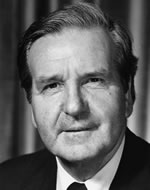
David Allan Highet was a New Zealand politician. He was an MP from 1966 to 1984, representing the National Party for Remuera, holding the then largest majorities in the House.
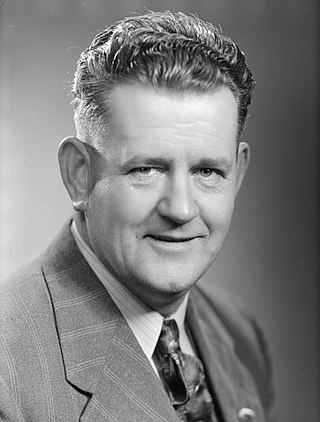
Hugh Watt was a New Zealand politician who was a Labour member of Parliament and the acting prime minister of New Zealand between 31 August and 6 September 1974, following the death of Prime Minister Norman Kirk. He had been the fifth deputy prime minister of New Zealand since 8 December 1972. Watt later served as high commissioner to the United Kingdom.

Cedric Russell Marshall, known as Russell Marshall, is a former New Zealand politician of the Labour Party and diplomat.

Hugh Campbell Templeton is a former New Zealand diplomat, politician and member of parliament for the National Party.

Phillip Albert Amos was a New Zealand politician of the Labour Party.

Eric Sidney Fostyn Holland was a New Zealand politician who served as an elected member of the House of Representatives from 1967 to 1981 for the National Party and as a Cabinet Minister in the second and third National governments.
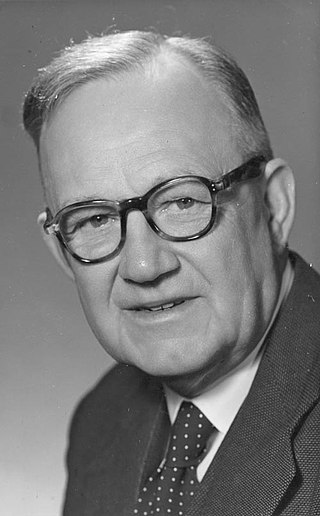
William Theophilus Anderton was a New Zealand politician of the Labour Party. He served as Minister of Internal Affairs in the second Labour Government, from 1957 to 1960.

Percy Benjamin Allen was a New Zealand politician of the National Party.
Peter Ian Wilkinson was a New Zealand politician of the National Party.
Robert Linfield Bell was a New Zealand politician of the National Party. He had a farming background and represented the Gisborne electorate in Parliament from 1975 until his defeat in 1984.
Ian John Shearer was a New Zealand politician of the National Party, environmentalist and research scientist.
Edward Emanuel Isbey was a New Zealand politician of the Labour Party.
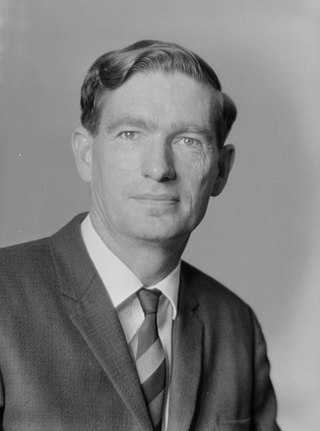
Fraser MacDonald Colman was a New Zealand politician of the Labour Party. He represented the electorates of Petone from 1967 to 1978, and then when Petone was renamed, Pencarrow from 1978 to 1987, when he retired. He was the cabinet minister chosen to represent New Zealand in 1973 on its warships during their protest against the nuclear weapons testing carried out by France.

Thomas Philip Shand was a New Zealand politician of the National Party.
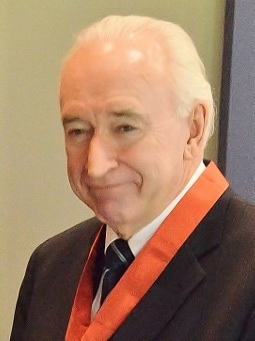
The 1984 New Zealand National Party leadership election was held to determine the future leadership of the New Zealand National Party. The election was won by former deputy prime minister Jim McLay.